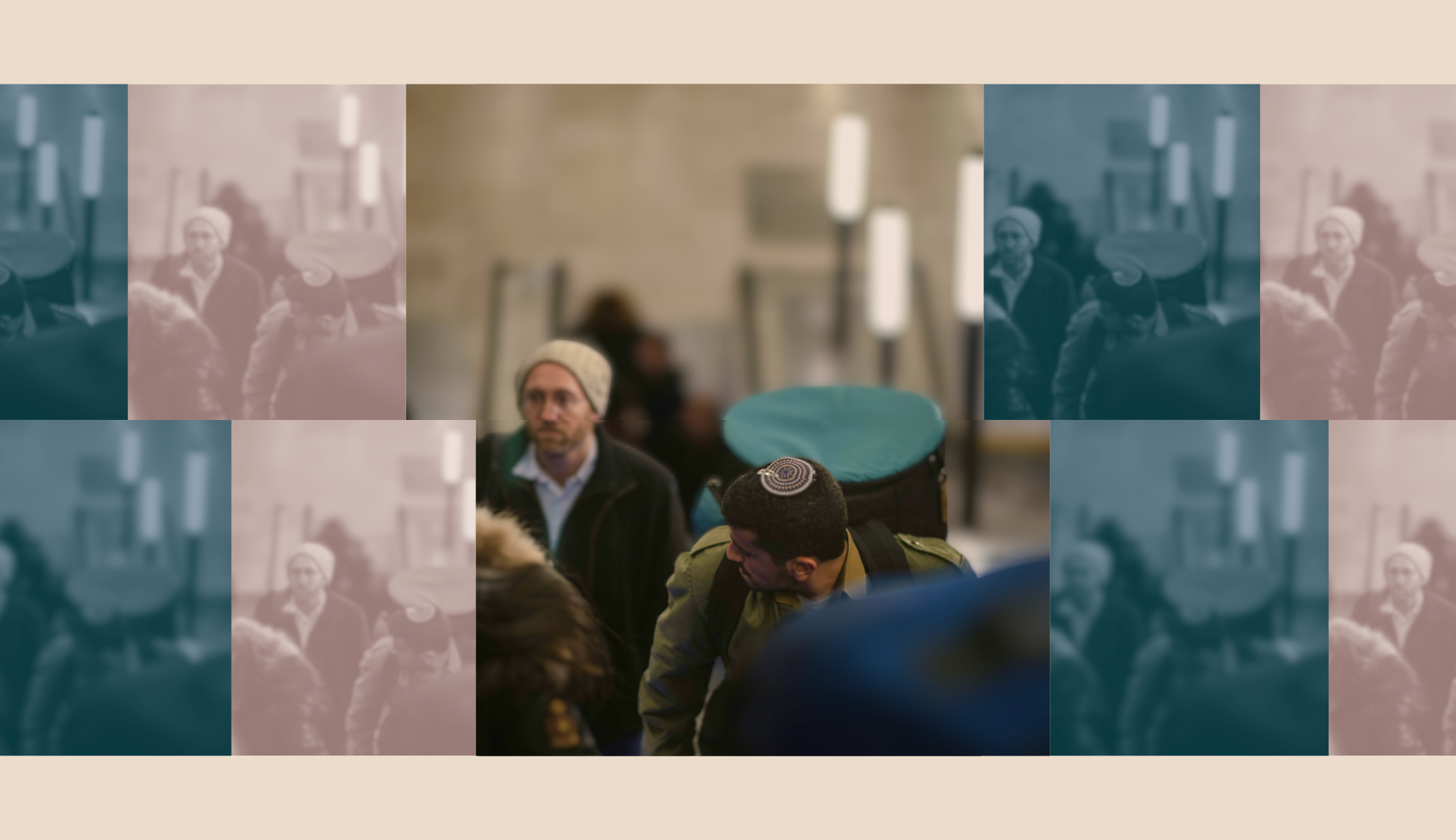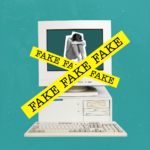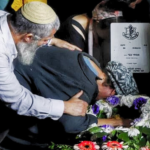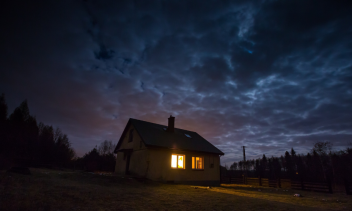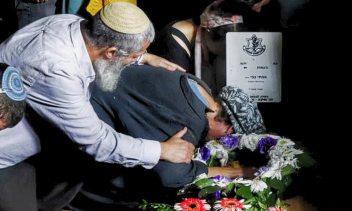Author’s Note: This poem was written out of a real-life experience, not as a play on words in the head. To me, it attempts to contain the strong tension that exists within Jews, which might also be a source of our energy, between the Tanach, and the language of Tanach. The same Tanach that treats our enemy in a severe manner and commands us to fight them to the bitter end, is written in the Holy language of Hebrew, in which there is no other word to use for a human being except for one that reflects and respects the image of God that is human: בן אדם – Son of Adam.
Stray dogs drag a piece of flesh to the side of the road
and lick its blood
I turn to the soldier beside me:
“Tell me, is this a ben adam?”
I ask as if Adam had only one son
and this might be him.
It wasn’t my intention to ask it this way;
And although I’m sure the ancient stories of Tanakh,
demanding revenge and redeeming blood,
that wish to jump from their pages
and come to life[1] in this body of the fallen enemy that lies before
me
were disappointed by my sensitive tongue,
My Hebrew lips left me no choice
but to name him with words of honor
that maintains the image of God.
He too
is one of the sons
Of Adam.
Winter 2023-24, Swords of Iron, Gaza’s coastal road.
שְׂפָתַיִם עִבְרִיּוֹת
כַּלְבֵי רְחוֹב גָּרְרוּ רִקְמַת בָּשָׂר לְצַד הַדֶּרֶךְ
,וַיָּלֹקּוּ דָּמָה
:פָּנִיתִי לַחַיָּל שֶׁלְּצִדִּי
?תַּגִּיד, זֶה בֶּן אָדָם
שָׁאַלְתִּי כְּאִלּוּ לְאָדָם הָרִאשׁוֹן
הָיָה רַק בֶּן אֶחָד בִּלְבַד
.וְאוּלַי זֶה הוּא
,וְלֹא בְּכַוָּנָה תְּחִלָּה שָׁאַלְתִּי כָּךְ
וּבֶטַח סִפּוּרֵי תָּנָ”ךְ עַתִּיקִים
טְעוּנֵי נְקָמָה וּגְאֻלַּת דָּם
שֶׁבִּקְּשׁוּ לְצֵאת מִדַּפֵּיהֶם
וְלִרְקֹם עוֹד וְגִידִים
בְּגוּפַת הָאוֹיֵב הַמְּרֻטֶּשֶׁת לְפָנַי
,הִתְאַכְזְבוּ מֵעֲדִינוֹת לְשׁוֹנִי
אַךְ שְׂפָתַי הָעִבְרִיּוֹת לֹא הוֹתִירוּ לִי בְּרֵרָה
אֶלָּא לְכַנּוֹתוֹ בְּשֵׁם שֶׁל כָּבוֹד
.הַמְּשַׁמֵּר צַלְמוֹ שֶׁל אֱלֹהִים
אַף הוּא אֶחָד מִבָּנָיו
.שֶׁל אָדָם
.חורף תשפ”ד, חרבות ברזל, כביש החוף של עזה
Nachshon Meir Spiegelman is an educator and tour guide in Israel, a former soldier in the IDF, and the author of the children’s book Storky’s Journey Home.
[1] This Hebrew expression is based on Yechezkel 37:8, from the vision of the dry bones coming back to life: וְרָאִ֜יתִי וְהִנֵּֽה־עֲלֵיהֶ֤ם גִּדִים֙ וּבָשָׂ֣ר עָלָ֔ה וַיִּקְרַ֧ם עֲלֵיהֶ֛ם ע֖וֹר מִלְמָ֑עְלָה וְר֖וּחַ אֵ֥ין בָּהֶֽם . “I looked, and there were sinews on them, and flesh had grown, and skin had formed over them; but there was no breath in them.” The expression literally translates to “flesh and sinews had grown,” and is meant in modern Hebrew to mean to come back to life.


